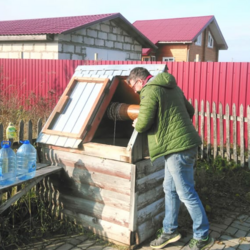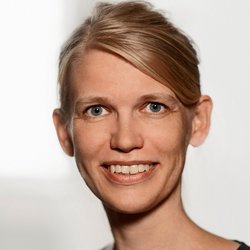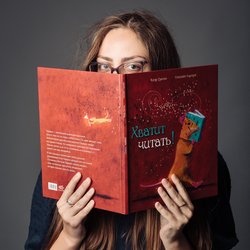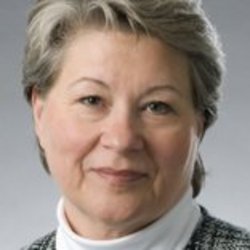Ruslandstudier på Aarhus Universitet udbyder en helhedsorienteret sproglig, kulturhistorisk og social- og samfundsfokuseret uddannelse inden for en vigtig verdensregion, der dækker elleve tidszoner fra Kaliningrad til Kamtjatka. At lære russisk sprog er dit udgangspunkt for en nødvendig dialog med ikke kun de omkring 145 millioner indbyggere i Rusland, men også med de millioner af russisktalende, der bor i det tidligere Sovjetområde og i hele verden. Ruslands energibaserede økonomi og det nuværende regimes stadig mere aggressive udenrigspolitik udgør en akut energi- og sikkerhedspolitisk udfordring for Ruslands østeuropæiske naboer, EU og de nordiske lande. Samtidig har globale russiske kulturer efterladt os en rig verdensarv af billedkunst, litteratur og film, og Rusland har fortsat betydning kunst og videnskab i dag. Du vil studere regionen som en faglig helhed: du vil få ekspertise inden for kultur, samfund, politik og historie og opnå akademiske og analytiske færdigheder, der fremtidssikrer din karriere i en foranderlig verden.
Uddannelser og muligheder
BA-uddannelse i ruslandstudier på Aarhus Universitet er en sprogbaseret områdeuddannelse, der undervises af en tværfaglig og international gruppe forskere. Særligt i begyndelsen af studiet lægges vægt på intensiv sprogundervisning af modersmålstalende specialister i russisk som fremmedsprog, og derfor er BA uddannelsen normeret til 7 semestre. En BA i ruslandstudier kan kombineres med mange kandidatfag. På Afdeling for Globale Studier udbydes et engelsksproget tilvalg (5. og 6. semester) i "Addressing global challenges". På KA-niveau kan du bygge videre på dine fagkompetencer og sprogfærdigheder med en KA i Globale Områdestudier (GLAS).
Uddannelsen i ruslandstudier åbner for karriereveje inden for meget forskellige områder som kommunikation og journalistik, undervisning og uddannelse, international handel og turisme, offentlig administration, forsvar og sikkerhed samt forskning.
Partnere og aktiviteter
Du tilbringer et helt semester i udlandet på et partneruniversitet i et russisktalende miljø i af de baltiske lande. Vores studerende tager ofte på praktikophold på de danske ambassader og kulturinstitutter i øst- og centraleuropæiske lande.
De studerende arrangerer af og til fælles rejser til forskellige destinationer i Østeuropa, og nogle engagerer sig i Silba Aarhus - Initiativ for Dialog og Demokrati, en non-profit og tværpolitisk ungdomsorganisation, der arbejder for demokrati og brobygning.

Academic Background:
DPhil Sussex. I did my MA at Queen Mary, London in a very interdisciplinary department of cultural studies. My BA was from Lancaster in English and Sociology.
My research in a nutshell:
Basically I use micro-methods to talk in a novel way about macro social and economics issues. More specifically this means adopting the
classic method of anthropology - ethnography: living in the community you are studying, participating, engaging and taking seriously what people say and do while remaining objective. I then use that as a lens to study things like neoliberal policies (changes in welfare conditions for families and unemployed, the degree of control and surveillance at work, the general 'common sense' discourse in the media and society at large about how an individual should look after themselves). Other things that are more 'macro' are how bureaucracies work and interact with people, informal economy, civic activism, etc.
What is your favorite place in Russia and why?
I really love Moscow because it's the biggest global city in Europe and you can pretty much do/see/hear anything there. People don't realise how fast Moscow changes. It's as hypermodern as any Chinese or Japanese city, and yet right at its centre you can meet old
wooden houses with pensioners living in them and beautifully quiet garden yards, family-run shops and genuine local music or culture scenes. My research is in a small town, so coming back to Moscow from time to time is a real treat. I just love walking around with my Russian friends and talking about the buildings and streets we explore together.


Academic Background:
I hold a Ph.D. from the Johannes-Gutenberg-University of Mainz, Germany, awarded with distinction 2014, and an M.A. in Comparative Literature with Russian form the University of Copenhagen. I am author of an illustrated monograph on contemporary Russian book design and print culture The New Russian Book. A Graphic Cultural History (New Directions in Book History, Palgrave, 2017). Before entering academia, I have worked as curator at the Workers’ Museum in Copenhagen and as Danish teacher at the Maxim Gorky Literary Institute in Moscow.
My Research in a Nutshell:
My research is focused on Russian visual and material culture, Soviet and post-Soviet print culture, and media history. Recent research projects are related to Soviet children’s books, the history of Soviet paper, and late Cold War ‘book diplomacy’.

Academic Background:
IntM in Children’s Literature, Media & Culture, University of Glasgow, Aarhus University, University of Tilburg (2020–2022, awarded with Distinction)
MSt in English 1830–1914, University of Oxford (2017–2018)
MA in Linguistics and Translation Studies (English and French), Nizhny Novgorod State Linguistic University (2006–2011)
My research in a nutshell:
I am part of the joint research project PUBLISH: Children’s Books in the Russia-Ukraine War, where I examine how contemporary Russian children’s and young adult literature depicts the current war, despite ever-increasing censorship laws. I explore how publishers and authors navigate this environment by producing new titles about war, as well as reprinting relevant titles from their back catalogues, commissioning more translations of war-related books, and publishing non-fiction titles on adjacent topics like dictatorship, fake news, and democracy. This emerging body of work also influences portrayals of past wars, challenging historical taboos and state-sanctioned hegemonic rhetoric.
Other research interests include translation and circulation of children’s literature, ABC books, and migration narratives in picturebooks and graphic novels.
What is your favourite book?
One of my all-time favourite books is Timm Thaler, or The Traded Laugh (1962) by James Krüss. I remember a special cabinet in my school library filled with beautifully bound children’s book from the world’s literature series and those books were strictly not allowed to be taken home. But I was given special permission (as a reward for good behaviour). In the lilac-coloured volume with a sailboat on the cover, I found the story of Timm Thaler, a boy who sold his laugh (and with it, his smile) in exchange for the ability to win any bet. Until the age of five, I refused to smile in photos and although I never made any such deals, this coincidence always amused me.

Academic Background:
I have a PhD in Russian as a foreign language from the University of Leningrad (Skt. Petersburg) and have taught Russian at university for over 40 years both in Russia and in Odense and Aarhus.
My research in a nutshell:
I have done research in the field of ethnolinguistics – how language reflects culture – but as a teaching associate professor, the focus of my work is teaching rather than research, so I use my expertise in ethnolinguistics to show our students how the language can help them understand the culture. Recently I have devoted my time to developing teaching materials to help our students pick up the Russian language more effectively. I have also been participating in a project financed by the National Center of Foreign Languages, where my students are partnered with Russian students who are learning Danish, so that they can practice with each other and discuss various topics, which is tremendously helpful both for learning the language and familiarizing themselves with the culture.
What is your favorite book?
My favorite book is Dostoyevskij’s “The Brothers Karamazov”. First of all, this novel captivated me the way a great piece of crime fiction does. And while it is indeed a crime novel, as many of Dostoyevskij’s novels are, the most important thing about it is Dostoyevskij’s thoughts about the “Russian mentality” and about concepts such as the meaning of life, responsibility, what love is and so on.